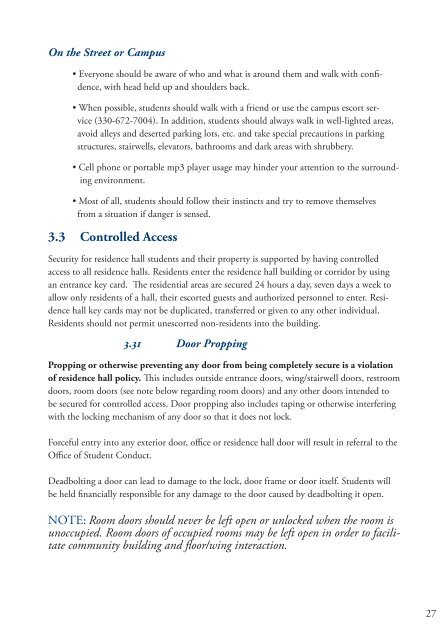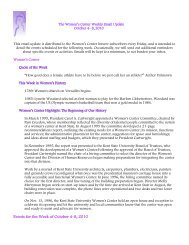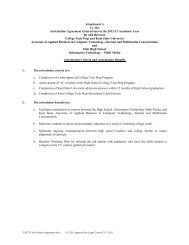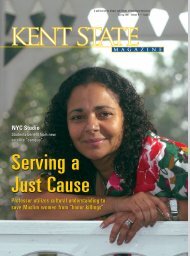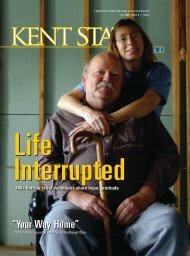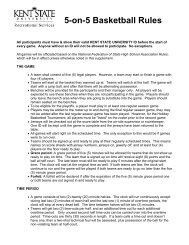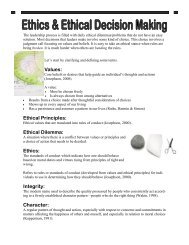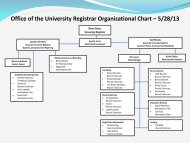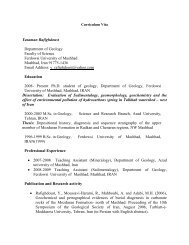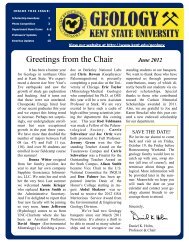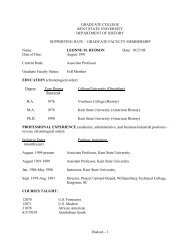Hallways Handbook - Kent State University
Hallways Handbook - Kent State University
Hallways Handbook - Kent State University
Create successful ePaper yourself
Turn your PDF publications into a flip-book with our unique Google optimized e-Paper software.
On the Street or Campus<br />
• Everyone should be aware of who and what is around them and walk with confidence,<br />
with head held up and shoulders back.<br />
• When possible, students should walk with a friend or use the campus escort service<br />
(330-672-7004). In addition, students should always walk in well-lighted areas,<br />
avoid alleys and deserted parking lots, etc. and take special precautions in parking<br />
structures, stairwells, elevators, bathrooms and dark areas with shrubbery.<br />
• Cell phone or portable mp3 player usage may hinder your attention to the surrounding<br />
environment.<br />
• Most of all, students should follow their instincts and try to remove themselves<br />
from a situation if danger is sensed.<br />
3.3 Controlled Access<br />
Security for residence hall students and their property is supported by having controlled<br />
access to all residence halls. Residents enter the residence hall building or corridor by using<br />
an entrance key card. The residential areas are secured 24 hours a day, seven days a week to<br />
allow only residents of a hall, their escorted guests and authorized personnel to enter. Residence<br />
hall key cards may not be duplicated, transferred or given to any other individual.<br />
Residents should not permit unescorted non-residents into the building.<br />
3.31 Door Propping<br />
Propping or otherwise preventing any door from being completely secure is a violation<br />
of residence hall policy. This includes outside entrance doors, wing/stairwell doors, restroom<br />
doors, room doors (see note below regarding room doors) and any other doors intended to<br />
be secured for controlled access. Door propping also includes taping or otherwise interfering<br />
with the locking mechanism of any door so that it does not lock.<br />
Forceful entry into any exterior door, office or residence hall door will result in referral to the<br />
Office of Student Conduct.<br />
Deadbolting a door can lead to damage to the lock, door frame or door itself. Students will<br />
be held financially responsible for any damage to the door caused by deadbolting it open.<br />
NOTE: Room doors should never be left open or unlocked when the room is<br />
unoccupied. Room doors of occupied rooms may be left open in order to facilitate<br />
community building and fl oor/wing interaction.<br />
27


